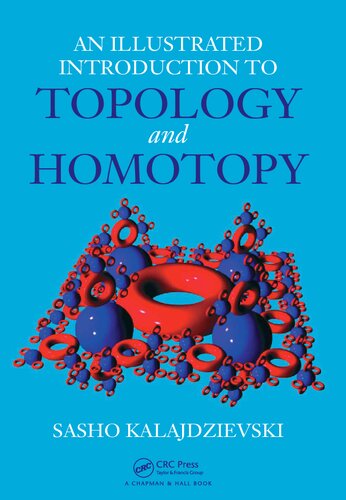

Most ebook files are in PDF format, so you can easily read them using various software such as Foxit Reader or directly on the Google Chrome browser.
Some ebook files are released by publishers in other formats such as .awz, .mobi, .epub, .fb2, etc. You may need to install specific software to read these formats on mobile/PC, such as Calibre.
Please read the tutorial at this link: https://ebookbell.com/faq
We offer FREE conversion to the popular formats you request; however, this may take some time. Therefore, right after payment, please email us, and we will try to provide the service as quickly as possible.
For some exceptional file formats or broken links (if any), please refrain from opening any disputes. Instead, email us first, and we will try to assist within a maximum of 6 hours.
EbookBell Team

5.0
78 reviewsAn Illustrated Introduction to Topology and Homotopy explores the beauty of topology and homotopy theory in a direct and engaging manner while illustrating the power of the theory through many, often surprising, applications. This self-contained book takes a visual and rigorous approach that incorporates both extensive illustrations and full proofs.
The first part of the text covers basic topology, ranging from metric spaces and the axioms of topology through subspaces, product spaces, connectedness, compactness, and separation axioms to Urysohn’s lemma, Tietze’s theorems, and Stone-Čech compactification. Focusing on homotopy, the second part starts with the notions of ambient isotopy, homotopy, and the fundamental group. The book then covers basic combinatorial group theory, the Seifert-van Kampen theorem, knots, and low-dimensional manifolds. The last three chapters discuss the theory of covering spaces, the Borsuk-Ulam theorem, and applications in group theory, including various subgroup theorems.
Requiring only some familiarity with group theory, the text includes a large number of figures as well as various examples that show how the theory can be applied. Each section starts with brief historical notes that trace the growth of the subject and ends with a set of exercises.